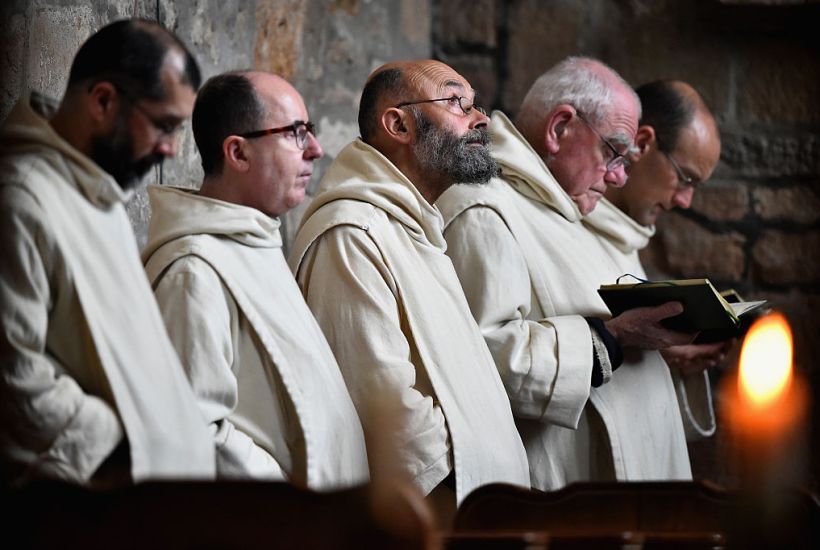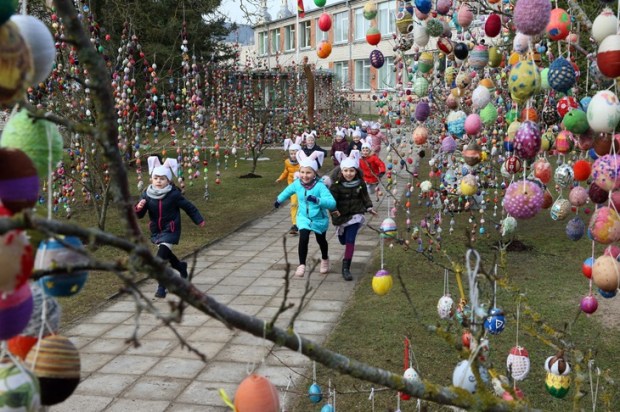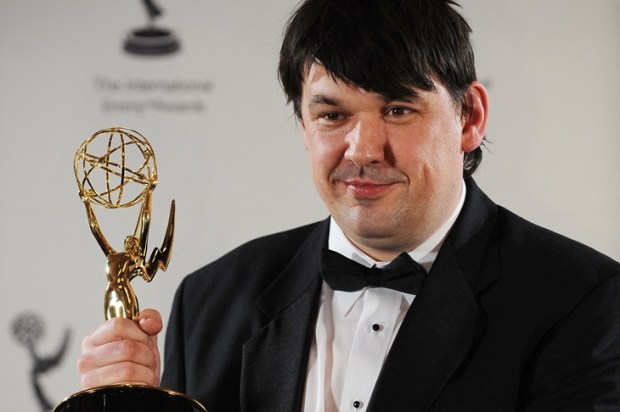All hell has broken loose on Australian churches now the Royal Commission into Institutional Responses to Child Sexual Abuse has delivered its final report and recommendations to the Governor General.
There is nothing in the Final Report about Islam’s predilection to inflict female genital mutilation on its children but the Roman Catholics and the Anglicans have plenty to fear from the Royal Commission’s 189 new recommendations – many of which are aimed at making institutions (other than Islam) safer for children.
Together with the three final reports already released – Criminal Justice, Redress and Civil Litigation and Working With Children Checks – Commissioners have made a total of 409 recommendations.
The Australian Government provided the Royal Commission a total of $372.8 million over five years to complete its work, including the two-year extension. The Royal Commission’s total estimated expenditure is $342.3 million, meaning it is expected to complete its work under budget by just over $30 million.
PM Julia Gillard confesses in her autobiography My Story that she set up the Royal Commission in the dying days of her trainwreck government because “I knew a royal commission would be publicly popular.”
She says she spoke to Cardinal George Pell before doing so as “I did not want the royal commission to be seen as a witch-hunt into one church.”
Tell that to David Marr and Louse Milligan.
Royal commission chair Peter McClellan (a former colleague of Gillard’s at Slater & Gordon) said the abuse was a “national tragedy”.
“Across many decades many institutions failed our children,” he said.
“Our child protection, criminal and civil justice systems let them down.
“Although the primary responsibility for the sexual abuse of a child lies with the abuser and the institution of which they were part, we cannot avoid the conclusion that the problems faced by many people who have been abused are the responsibility of our entire society.”
Royal Commission CEO Philip Reed said that through the work of the Royal Commission, the Australian public has learnt about the multiple and persistent failings of institutions to keep children safe, the cultures of secrecy and cover-up, and the devastating affects child sexual abuse can have on an individual’s life.
“The Final Report tells the story of institutional child sexual abuse in Australia, and provides recommendations to shape a safer future for children,” Mr Reed said.
“We have now completed our work. It’s up to governments and institutions to take the next steps and implement the Royal Commission’s recommendations.”
Certain case study reports, including into the Catholic Church at Ballarat and Melbourne and the Anglican Diocese of Newcastle, have been recommended for suppression until criminal proceedings have been finalised.
While the Anglicans obsecrate and the Catholics conjugate, it is clear the two largest Christian churches have a shared psychotic disorder, or folie à deux, in response to the damning indictment of criminal culpability that has been visited upon on them.
The royal commission was predicated on best practice being identified “so that it may be followed in the future both to protect against the occurrence of child sexual abuse and to respond appropriately when any allegations and incidents of child sexual abuse occur, including holding perpetrators to account and providing justice to victims.”
Mea maxima culpas by the Anglicans and Catholics will not cut any mustard in this stringent requirement that the churches completely overhaul policies and procedures to ensure the highest standards of child protection and safety in the future.
“We accept the challenge – and we are committed to taking action,” says Anglican Primate and Archbishop of Melbourne Dr Philip Freier. “We continue to put in place new policies, structures and protections to safeguard children,” says Archbishop Denis Hart, president of the Australian Catholic Bishops Conference.
So how’s that working for them?
Unfortunately, the royal commission tells us the Anglican Church has failed to achieve a nationally consistent approach to child sexual abuse due to lack of consensus between its 23 dioceses.
The inquiry into how the church has responded to child sexual abuse was told a national body was established to develop child protection standards that were enacted by the Anglican general synod in 2004.
Not all dioceses have adopted the Professional Standards Commission’s models or have only partially implemented them over the past 13 years, the Royal Commission into Institutional Responses to Child Sexual Abuse heard.
Garth Blake SC, a Sydney barrister and chairman of the church’s Professional Standards Commission, told the hearing the inaction left him “deeply” troubled.
“Part of the strategy… of the Professional Standards Commission has been to try and develop best-practice policies,” he said.
“What we have seen over the past 13 years is that they have not been picked up by all dioceses and that’s a matter of profound disappointment to me.
“We have made a lot of progress but the fact that there is this fragmentation has led to… different standards of care around what should be core minimum standards.”
Data released by the royal commission shows almost 1100 people alleged they were sexually abused as children in Anglican institutions, with 22 out of the 23 dioceses identified in the report.
The data shows 64 complaints of child sexual abuse related to alleged incidents in the 2000s and 18 related to alleged incidents in the 2010s.
Commissioner Robert Fitzgerald told the hearing the lack of consensus among the dioceses was “almost inexplicable”.
“It seems astonishing that the Anglican church is still not capable of putting aside relatively minor differences to come to a common approach,” he said.
Audrey Mills, a member of the Anglican Professional Standards Commission told the hearing that dioceses retained autonomy under the church’s constitution.
“Diocesan autonomy is something which each diocese very much values, seeks to retain, and that has been a real barrier,” she said. “It is almost embedded in the culture.”
Ms Mills told the commission that a nationally consistent approach to child protection would be discussed at an upcoming meeting of the general synod.
“There has been a lot of change but there is still work to be done,” she said.
Assistant Bishop of the diocese of Canberra and Goulburn Matthew Brain agreed there needed to be a common approach to alleged misconduct.
“This particular matter to do with child sexual abuse is of such moment we need to provide clarity around this particular issue and do it as soon as we can,” he said.
Meanwhile, the Catholics provided enough clarity to break the hearts of the true believers.
At the request of the Royal Commission, the Australian Catholic Church has released survey data revealing that seven per cent of priests, working between 1950 and 2009, have been accused of child sex crimes. The figures were even higher for some orders of religious brothers: 40 per cent for the Brothers of St John of God, 22 per cent for the Christian Brothers, and 20 per cent for the Marist Brothers.
Between 1980 and 2015, 4,444 alleged incidents of child sexual abuse relating to 93 Catholic Church authorities in Australia were reported. The average age of victims was 10.5 for girls and 11.6 for boys, and (notably) the overwhelming majority were male.
Frances Sullivan, CEO of the Catholic Church’s Truth, Justice and Healing Council, was the first to put up his hand:
“This… can only be interpreted for what it is: a massive failure on the part the Catholic Church in Australia to protect children from abusers and predators, a misguided determination by leaders at the time to put the interests of the Church ahead of the most vulnerable and, a corruption of the Gospel the Church seeks to profess. As Catholics, we hang our heads in shame.”
This is the summary of the recommendations:
- Preface and Executive Summary includes a summary of the final report and a complete list of all recommendations.
- Volume 1, Our inquiry introduces the Final Report, describes the establishment, scope and operations of the Royal Commission.
- Volume 2, Nature and cause describes what the Royal Commission has learned about the nature and cause of child sexual abuse in institutional contexts. It includes one recommendation.
- Volume 3, Impacts explains the impacts of child sexual abuse in institutional contexts on survivors and often on their family members, friends, and entire communities.
- Volume 4, Identifying and disclosing child sexual abuse describes what we learned about survivors’ experiences of disclosing child sexual abuse.
- Volume 5, Private sessions examines survivors’ experiences of child sexual abuse as told to Commissioners during private sessions.
- Volume 6, Making institutions child safe describes the need for a national child sexual abuse prevention strategy and proposes child safe standards, including how they should be implemented. It includes 24 recommendations.
- Volume 7, Improving institutional responding and reporting looks at institutions’ responses to complaints of child sexual abuse and how they report these matters to external government authorities. It includes 12 recommendations.
- Volume 8, Recordkeeping and information sharing examines the records, recordkeeping and information sharing of institutions that care for or provide services to children. It includes 23 recommendations.
- Volume 9, Advocacy, support and therapeutic treatment services looks at what we learned about survivors’ needs in terms of advocacy, support and treatment and offers recommendations for improving service systems to better respond to survivors’ needs. It includes nine recommendations.
- Volume 10, Children with harmful sexual behaviours examines what we learned about institutional responses to children with harmful sexual behaviours. It includes seven recommendations.
- Volume 11, Historical residential institutions describes what we learned about survivors’ experiences of, and institutional responses to, child sexual abuse in residential institutions pre-1990.
- Volume 12, Contemporary out-of-home care examines what we learned about institutional responses to child sexual abuse in contemporary out-of-home care. It includes 22 recommendations.
- Volume 13, Schools describes what we learned about institutional responses to child sexual abuse in schools. It includes eight recommendations.
- Volume 14, Sport, recreation, arts, culture, community and hobby groups looks at what we learned about institutional responses to child sexual abuse in sport and recreation contexts. It includes four recommendations.
- Volume 15, Contemporary detention environments reviews what we learned about institutional responses to child sexual abuse in contemporary detention environments. It includes 15 recommendations.
- Volume 16, Religious institutions examines what we learned about institutional responses to child sexual abuse in religious institutions. It includes 58 recommendations.
- Volume 17, Beyond the Royal Commission describes the impact and legacy of the Royal Commission and discusses monitoring and reporting on the implementation of our recommendations. It includes six recommendations.
Terence Maher is a former editor of The Melbourne Times.
Got something to add? Join the discussion and comment below.
Got something to add? Join the discussion and comment below.
Get 10 issues for just $10
Subscribe to The Spectator Australia today for the next 10 magazine issues, plus full online access, for just $10.


























Comments
Don't miss out
Join the conversation with other Spectator Australia readers. Subscribe to leave a comment.
SUBSCRIBEAlready a subscriber? Log in